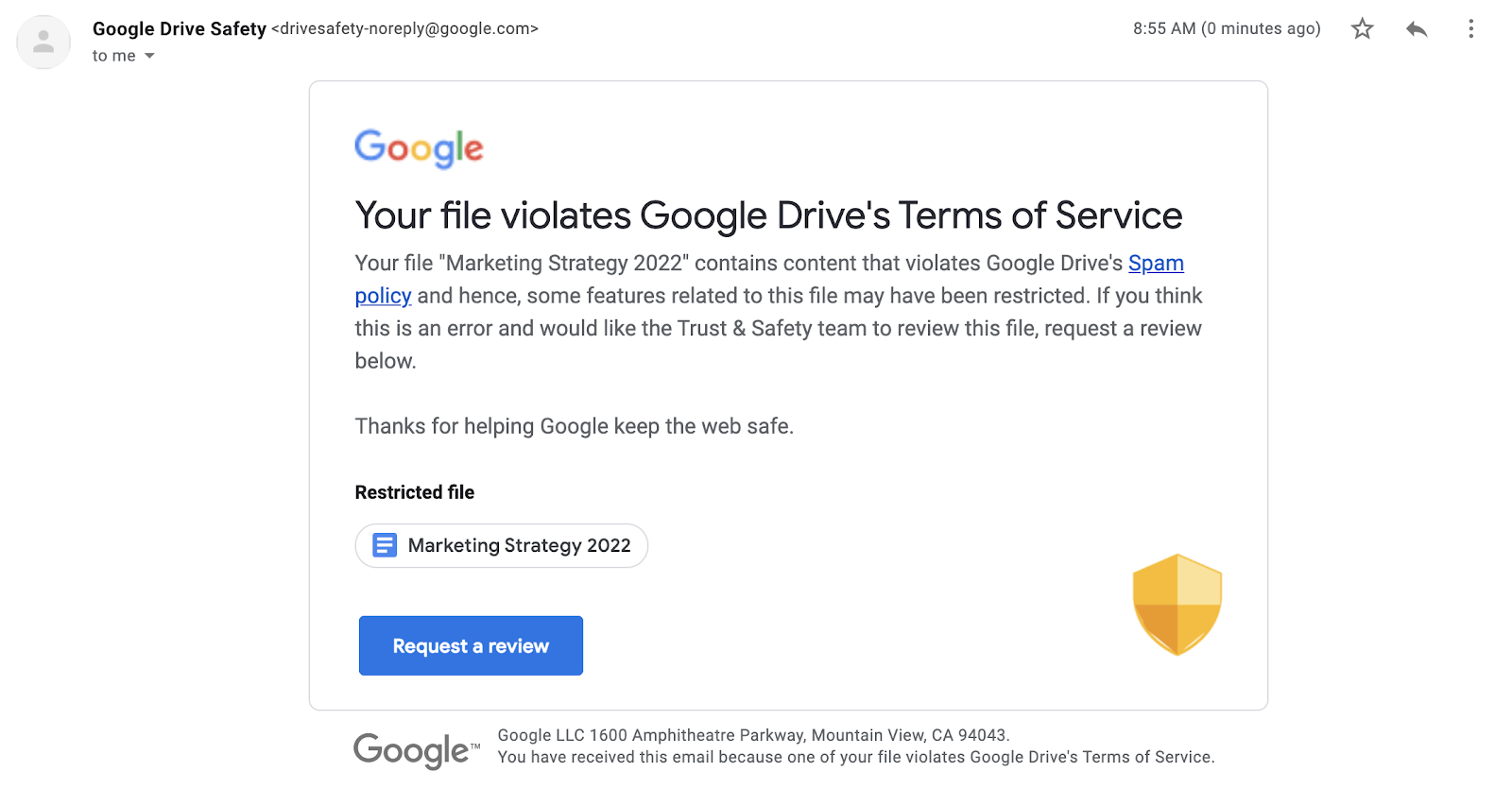New Google Drive policy could make your files inaccessible — what you need to know
Files breaking the rules? Google's going to take action

Update: Google Drive just got a huge upgrade — and it's about time.
Google’s about to make some changes to the way you share Google Drive files. The search giant has announced a new policy that will restrict access to files violating its policies, and prevent them from being shared in the process.
Google announced this change in a blog post, revealing that restrictions may be put in place on files that violate Google’s Terms of Service or abuse program policies. While the owner will still have full access, this move means sharing privileges will be revoked — even if someone already has a link.
According to Google file owners will receive an email when files are restricted. Not only does that alert them to the fact it’s happened, it will also give them the opportunity to appeal the decision and request a review.
Google also noted that after policy violations, Google may then review the content and take further action. The results of that action include “restricting access to the content, removing the content, and limiting or terminating a user’s access to Google products.”

Google’s abuse program policies page detail a number of sensitive topics that it doesn’t allow. They include, but are not limited to, dangerous and illegal activities, hate speech, malware, sexually explicit material and misleading content.
In the case of any illegal material, Google will presumably file a report with the appropriate authorities and let them investigate the matter.
Get instant access to breaking news, the hottest reviews, great deals and helpful tips.
According to Google, this move is designed to try and curb the spread of this sort of content. The idea is to prevent Google Drive’s services being abused, though it’s not clear how strict Google will be at detecting and restricting infringing files.
The search giant confirmed that there will be “exceptions based on artistic, educational, documentary or scientific considerations,” suggesting that actual people will be making the actual decisions rather than leaving it all to algorithms. Because algorithms invariably get things wrong.
We can all agree that curbing the spread of illegal material on Google Drive, be it pirated material or something considerably worse like child sexual abuse imagery, is a good idea. However, we still need a bit more information on how this new policy will be enforced, and what the appeals process will be.
In a statement to TechRadar Pro, Google wasn’t particularly forthcoming with answers: "Google Drive is constantly working to protect the security and safety of our users and society while always respecting privacy. Similar to how Gmail has long kept users safe from phishing and malware attacks, bringing these same protections to Google Drive is critical in ensuring Drive remains as safe as possible for all users.”
If anything, let this be a reminder that cloud backups are controlled by third party entities. Entities that can and do enforce rules about how their services are used. On top of that, the privacy and security of files you store will always be in doubt — certainly compared to keeping them on a hard drive somewhere in your own house.

Tom is the Tom's Guide's UK Phones Editor, tackling the latest smartphone news and vocally expressing his opinions about upcoming features or changes. It's long way from his days as editor of Gizmodo UK, when pretty much everything was on the table. He’s usually found trying to squeeze another giant Lego set onto the shelf, draining very large cups of coffee, or complaining about how terrible his Smart TV is.
 Club Benefits
Club Benefits





